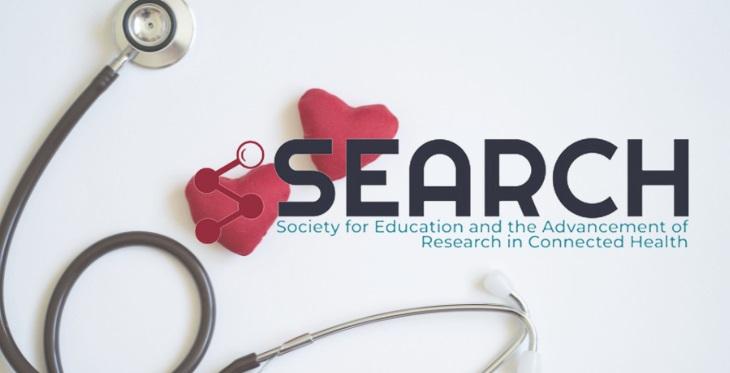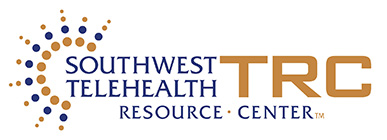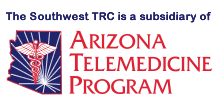
Virtual? In-person? Hybrid? These were the decisions faced by the officers and advisory committee of the Society for Education and the Advancement of Research in Connected Health (SEARCH) after three years of virtual events due to COVID. By 2023, the weariness of virtual meetings had taken its toll, so in-person it was. The outcome exceeded expectations. The National Telehealth Research Symposium in 2023 turned out to be a resounding success!
As in previous years, the meeting would not have succeeded without the support of collaborating organizations, and this year we had six partners return: the Medical University of South Carolina National Telehealth Center of Excellence, the National Consortium of Telehealth Resource Centers, SPROUT (Supporting Pediatric Research on Outcomes and Utilization of Telehealth), the University of Arkansas for Medical Sciences (UAMS) Institute for Digital Health & Innovation, the UAMS Translational Research Institute, and the University of Mississippi Medical Center National Telehealth Center of Excellence. New for 2023 was a collaboration with the American Heart Association (AHA).
The AHA is increasingly supporting telehealth for providing clinical services. With the establishment of their Center for Telehealth, they are promoting more research in this area. Fortuitously their Scientific Sessions Meeting was scheduled for November 11-13 in Philadelphia which was right around the time SEARCH was looking to host its meeting. Through some chance introductions and conversations, we decided to collaborate and host SEARCH at the same location right before the AHA meeting. The goal was to foster possible research collaborations by giving SEARCH and AHA attendees the opportunity to attend both meetings as well as a joint reception on the evening the two meetings overlapped.
Kristina Wait, medical director of the AHA’s Center for Telehealth, nicely summed the intent: “The American Heart Association Center for Telehealth was proud to be a collaborating organization of the 2023 SEARCH Telehealth Research Symposium. Over the three days, we were able to delve into the transformative potential of telehealth in shaping healthcare's future, reviewing the research that is driving this change. Through rigorous scientific inquiry, we uncovered the intricate mechanisms by which telehealth interventions enhance patient outcomes, identifying best practices, streamlining protocols, and tailoring approaches to meet the unique needs of diverse patient populations. The SEARCH Telehealth Research symposium showcased the research that drives telehealth forward, ensuring that our strategies are firmly rooted in evidence and guided by scientific principles.”
Although SEARCH was cautiously optimistic about hosting the in-person meeting, expecting about 100 attendees, we exceeded our hopes with nearly 150 attendees! This was close to pre-COVID attendee levels which surprised all of us and attested to the power of telemedicine and the interest in presenting and hearing about recent advances in research. The meeting had close to 100 abstracts submitted for oral and poster presentations and nearly 30 volunteer reviewers. We had close to 90 speakers at the event, presenting an amazing array of topics related to telehealth from clinical outcomes through cost analyses. What was evident this year as opposed to previous years was the significantly increased level of scientific sophistication of the studies and the use of statistical analyses to support conclusions.
A highlight of SEARCH has always been the Research Flashes where speakers with posters get 90 seconds to “pitch” their posters to conference attendees in the main room before the actual poster sessions, and this year was no exception. We had 43 poster presentations and not a single person ran over their 90 seconds. There is no doubt that these quick summaries enticed the audience to come to the poster sessions and speak with the authors as these sessions were very well attended. The oral presentations were engaging, informative, and jam-packed with evidence and lessons learned that unwaveringly supported the value of research to support telehealth.
No meeting is complete without plenary speakers. The meeting opened with a wonderful talk by Keith Churchwell, MD the President-Elect American Heart Association president-elect. His work as a volunteer with the AHA includes president of the Southeast Region and former Founders Affiliate, four years as chair of the Advocacy Coordinating Committee and a member of the Executive Committee and Board of Directors. In these positions he has been part of concentrated efforts to address issues of health equity and social disparities and helped coordinate AHA’s role in identifying and working on solutions, not only within the organization but in collaboration with other organizations that have a national scope and impact. He provided a great overview of AHA’s mission, its involvement in telehealth, and the importance of collaborations like the one between AHA and SEARCH to promote research.
Artificial intelligence (AI) is a hot topic in healthcare and the second plenary talk from Rachini Moosavi, MHA delved into the topic of Incorporating AI in Digital Health. Moosavi is a healthcare and analytics professional with a passion for empowering people, delivering value, and improving healthcare through analytics insights. She is the Chief Analytics Officer at University of North Carolina Health and champions healthcare data and analytics enablement strategies there and across the industry. This thought-provoking talk covered healthcare trends driving opportunities for AI, the intersection of telehealth and AI, and evaluating AI opportunities to maximize value.
Day two started off with a plenary session on Innovations in Tele-Behavioral Health presented by Dee Ford, PhD; Connie Guille, MD; Jennifer Dahne, PhD; and Regan Stewart, PhD, all from the University of South Carolina. Their talks focused on critically important topics in behavioral and mental health such as the integration of mental health and addiction treatment in women’s health, specifically for the treatment of mental health and substance use disorders among pregnant and postpartum women; reducing the public health impact of mental health disorders, with a focus on depression and substance use disorders among vulnerable populations; and access to evidence based, trauma-informed mental health services regardless of location, language, socioeconomic status, or background.
SEARCH’s collaborating partner, SPROUT, provided an update on their recent advocacy and research efforts with presentations by David McSwain, MD, MPH and John Chuo, MD, MS. SPROUT is a multicentered collaborative research network dedicated to establishing an evidence base for pediatric telehealth so “children receive the best healthcare: Anywhere, Anytime.” Chuo provided a great summary of the STEM framework, focusing on using quality science and collaboratives to “Bring high value healthcare to the most people in the shortest time” and this was followed by a breakout session “Your Expertise Matters: The Researcher’s Role in Developing Meaningful Governmental Evidence-Based Policy” where four groups had the opportunity to work through simulated examples of using the STEM framework to promote telehealth adoption through policy change.
Saurabh Chandra, MD, PhD, chief telehealth officer of the Center for Telehealth at the University of Mississippi Medical Center and project director for the Center of Excellence at UMMC; Michele Kuahine, MS, director of Clinical and Patient Informatics, Wai'anae Coast Comprehensive Health Center; Sara Sundar, chief information officer - HIT , Wai'anae Coast Comprehensive Health Center; and Sirene Garcia, chief innovation officer at Finger Lakes Community Health in Penn Yan, NY, provided a very informative plenary on Revolutionizing Access to Health Care in FQHCs via Telehealth. The summary of activities, the challenges and solutions provided by Kuahine and Sundar were not only informative for those less familiar with FQHCs, but inspiring given the populations and environments within which their programs operate.
The final plenary session was hosted by Wakina Scott, PhD, MPH from the Health Resources and Services Administration with speakers Nicholas Mohr, MD, MS from the University of Iowa and Cari Bogulski, PhD from the University of Arkansas for Medical Sciences discussing Federal Telehealth Research: Efforts to Build the Evidence Base. Mohr is director of the Rural Telehealth Research Center, a center funded by the HRSA Office for the Advancement of Telehealth and talked about understanding the role of telecommunication technology in improving the health of rural communities. Bogulski is a core team member for the Rural Telehealth Evaluation Center (RTEC) and project lead on multiple RTEC projects, including the Licensure Portability Program Summative Examination, the Broadband Pilot Program Evaluation, and multiple research projects investigating racial/ethnic and rural disparities in telehealth utilization and perceptions. Their talks provided great overviews of some of their recent key research projects.
We do not know where SEARCH will be held in 2024, but we look forward to working with our collaborating partners to host another amazing event that will further establish telehealth as an integral part of our healthcare systems.


